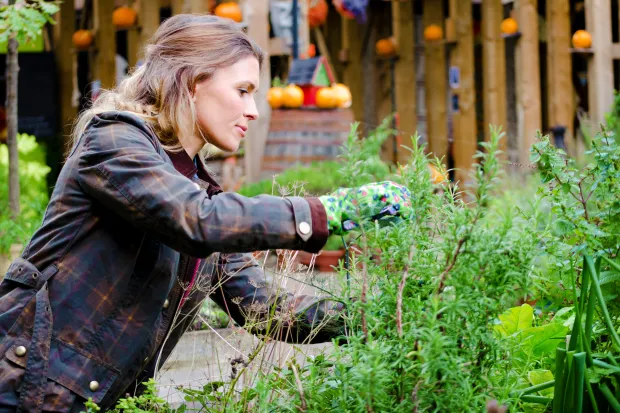Controlling invasive ivy in your garden can be a daunting task, but using natural methods is both eco-friendly and effective. Many people prefer to avoid harsh chemicals and instead rely on homemade remedies. One such solution that has gained popularity involves a simple combination of vinegar and salt. This remedy offers a natural way to kill ivy while being safe for your yard and the environment.
Why Choose Natural Methods to Kill Ivy?
When dealing with ivy, it is important to choose methods that won’t harm the surrounding plants or soil. Chemical herbicides, while effective, often come with risks. They can damage other plants and introduce harmful substances into the soil. On the other hand, natural solutions, like vinegar and salt, offer a safer alternative. By using common household items, you can effectively target the ivy without harming other plants or affecting soil quality.
Safe for the Environment
One major benefit of using vinegar and salt to kill ivy is that this mixture is environmentally friendly. Both ingredients break down naturally and are non-toxic to animals and people. If you are someone who prefers organic gardening, this method aligns well with that philosophy.
How Vinegar and Salt Kill Ivy
Vinegar and salt work together to dehydrate the ivy, ultimately killing the plant. The acetic acid in the vinegar disrupts the plant’s cells, while the salt dries out the roots. This powerful combination is particularly effective at killing ivy when applied directly to the leaves and stems.
The Role of Vinegar
Vinegar contains acetic acid, which lowers the pH of the soil when applied directly to ivy. This makes the plant unable to absorb nutrients, leading to its eventual death. The acidity of the vinegar also helps to burn the leaves and dry out the stems of the ivy.
The Effect of Salt
Salt is a crucial component in this remedy because it disrupts the plant’s ability to take in water. By dehydrating the ivy, salt prevents the plant from growing back after the initial treatment. However, salt should be used with caution, as it can affect the soil if overused.
How to Make the Vinegar and Salt Solution
Creating the vinegar and salt solution to kill ivy is simple and cost-effective. All the ingredients are likely to be found in your home, making this an accessible method for most gardeners. To make the solution, you will need:
- 1 gallon of white vinegar
- 1 cup of table salt
- A few drops of dish soap
Step-by-Step Guide
- Start by mixing the vinegar and salt in a large container.
- Add a few drops of dish soap to the mixture. The dish soap helps the solution stick to the ivy, improving its effectiveness.
- Pour the solution into a spray bottle for easy application.
Once your mixture is ready, spray it directly onto the ivy leaves and stems. Make sure to coat the plant thoroughly, as this will ensure that the solution reaches every part of the ivy. It is best to apply the solution on a sunny day when the plant is dry, as this helps speed up the drying process.
Tips for Effectiveness and Precaution
While this natural remedy is effective, there are some precautions to keep in mind. Vinegar and salt can affect the surrounding soil and other plants if used too generously. Here are some tips to ensure the best results without harming your garden:
Target Specific Areas
When using the vinegar and salt solution, it’s important to target the ivy directly. Avoid spraying the solution on other plants or grass, as it can harm them. Use a spray bottle with a focused nozzle to ensure that only the ivy is treated.
Reapply if Necessary
For stubborn or well-established ivy, you may need to reapply the solution multiple times. It is important to check the plant after a few days and apply another round of treatment if the ivy is still alive. Persistence is key when dealing with invasive plants like ivy.
Natural Ivy Killer: Vinegar & Salt
Killing ivy naturally with vinegar and salt is an effective and eco-friendly method that requires just a few simple ingredients. By using this homemade solution, you can rid your garden of ivy without resorting to harmful chemicals. With a bit of persistence and careful application, your garden will be free of invasive ivy, leaving your other plants healthy and thriving. Give this natural remedy a try and see the difference for yourself!










